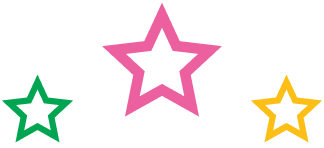
Live broadcast from space: young people from different countries talked with the Russian crew of the ISS at the Knowledge.First marathon within the framework of the WYF-2024

What the Earth looks like from space, is it difficult to get used to weightlessness and what awaits cosmonautics in the near future — young people from all over the world received answers to these questions at the educational marathon Knowledge of the Russian Knowledge Society, which takes place as part of the World Youth Festival. On the final day of the program, a live broadcast from the ISS took place in the Yamal pavilion, from where Roscosmos test cosmonauts Nikolai Chub and Konstantin Borisov talked with the guys. Another highlight was a conversation with Roscosmos cosmonaut, Hero of Russia Sergei Prokopyev.
Cosmonaut Sergei Prokopyev told the youth about the peculiarities of life and work in orbit. Answering the question of Serbian engineer Dusan about the most difficult aspects of staying on the ISS, he especially highlighted the weightlessness factor.
"Weightlessness is a pleasant feeling, the body does not need to strain. But that's why the human body loses muscle mass in space. This effect could be leveled with the help of artificial gravity, and if you develop a way to create it, we will be very grateful," Sergei Prokopyev said.
Another interesting technical question from the guys concerned the effect of solar radiation on astronauts and station equipment. Sergei Prokopyev admitted that radiation, especially at the moments of solar flares, does have an impact on astronauts, but there are ways to minimize its influence.
"Solar activity can really affect the body and the station's systems, they can malfunction. Communication, for example, can become unstable. Sometimes, after the flash, when closing their eyes before going to bed astronauts see charged particles flying through the retina of the eye, leaving a trail like a spark," explained Sergei Prokopyev.
He also noted the emotionality of the perception of the Earth from space. Our planet is not only incredibly beautiful when viewed from above, but also devoid of boundaries separating people. At the same time, some events on Earth are necessarily observed from the ISS.
"For example, we can observe the launches of our Soyuz or Progress spacecraft from the cosmodrome. Flying over the launch table, we watch the flame ignite under the rocket, as the ship leaves the atmosphere, at night it is especially clearly visible," the speaker shared.
The Russian crew of the International Space Station (ISS), test cosmonauts of the Roscosmos cosmonaut detachment Nikolai Chub and Konstantin Borisov, came into direct contact with the pavilion and its participants.
The participants of the meeting asked them a lot of questions, one of them related to experiments that are going on in orbit. According to Konstantin Borisov, the highlight of the scientific program of the current expedition will be a unique experiment with 3D bioprinting, which will take place in the near future. And speaking about the most unusual experiences on the ISS, Konstantin highlighted the experience he received on October 25.
"It was unusual to be left alone on the station when other crew members went into outer space. They could be heard making their way along the outer surface of the station. You could open the curtain of the porthole and see how they work. I also dream of going into outer space on the next expedition," said the test cosmonaut.
The kids asked Konstantin Borisov about his favorite books on space. He named the novel "The Little Prince" by Antoine de Saint-Exupery, the novels "The Martian" by Andy Weier and "The Task of Three Bodies" by Liu Cixin.
Anna from the Tula region invited the cosmonauts to reflect on what humanity's next step in space will be most likely in the near future — the creation of a colony on the Moon or sending a manned mission to Mars. According to Nikolai Chub, the answer should be sought beyond this dilemma.
"Both Mars and the Moon are quite popular, but it is not at all obvious that these are the best places for further expansion into space. There are fascinating satellites of gas giants, there are asteroids. Whole institutes and a huge number of people specializing in this issue are working to select the destinations of future expeditions. They will determine the path that will bring the greatest benefit to humanity," said Nikolai Chub.
Also on March 6, the final day of the Knowledge.First educational marathon, the lecturers of the thematic track "We stand together with Russia" were Deputy Prime Minister of the Russian Federation Tatyana Golikova and Deputy Head of the Russian Presidential Executive Office - Press Secretary of the President of Russia Dmitry Peskov, Minister of Sports of the Russian Federation Oleg Matitsyn, Minister of Science and Higher Education of the Russian Federation Valery Falkov, Governor of Zaporizhzhya region Evgeny Balitsky, Governor of Nizhny Novgorod region Gleb Nikitin, Olympic champion, world champion, two-time European champion, Russian boxing champion Alexander Povetkin, artistic director of the Moscow Oleg Tabakov Theater, People's Artist of Russia Vladimir Mashkov, Italian actress Ornella Muti and other prominent people.
The Knowledge Society is a general partner of the educational program of the World Youth Festival, and the educational Znanie.Pervye marathon is one of the main events of this program. The most striking presentations of lecturers can be seen on the 24-hour media channel https://russia.znanierussia.ru/tv/Znanie.TV.
Educational marathon takes place in Sirius from March 2 to 6 and covers six sites of the World Youth City: WYF International Airport, Yamal, Nizhny Novgorod, Kazan, Belgorod, and Moscow pavilions. The tracks of the educational marathon are consonant with the meanings of the Festival: “Responsibility for the fate of the world”, “Multinational unity”, “A world of opportunity for everyone”, “Saving the family for future generations” and “We stand together with Russia”.
Alongside the educational marathon "Znanie.Pervye," within the educational program of the World Youth Festival, the Knowledge Society organized the intellectual tournament "Znanie.Igra" with participants from different countries and the lecture series "Znanie.Kino", where viewers could watch legendary Russian films and discuss them with famous actors and directors. For the Festival participants a multimedia exhibition of the National Photo Contest Znanie.Russia will work, where they will be able to see the main achievements of Russia in the XXI century and immerse themselves in their atmosphere with the help of augmented reality technology.
The World Youth Festival shall become a platform for communication between young people from Russia and other countries. After the completion of the events on the Sirius Federal Territory, Russian Knowledge Society will continue the educational line of the World Youth Festival from March 10 to 17 within the framework of the regional program WYF 2024, which will cover all federal districts of our country.
***
Overview:
The World Youth Festival is held in accordance with the Decree of Russian President Vladimir Putin to develop international youth cooperation. At the first meeting of the Organizing Committee chaired by Sergey Kiriyenko, First Deputy Chief of Staff of the Presidential Administration, it was decided to hold the Festival in the Sirius Federal Territory.
20,000 young leaders in education, science, international cooperation, culture, volunteering, charity, sports, business, media, etc., including 10,000 foreign participants, will take part in the WYF 2024. For the first time in the history of the festival movement, teenagers from 14 to 17 years old had the opportunity to join the event, including 500 from Russia and 500 from abroad. 5,000 volunteers from all regions of Russia, including 228 residents of the LPR, DPR, Zaporizhzhia and Kherson Regions be involved in the organization and delivery of the Festival. The organizer of the World Youth Festival is the Federal Agency for Youth Affairs (Rosmolodezh), the operator of the WYF-2024 is the Directorate of the World Youth Festival.
The first federal education marathon was held in May 2021 and became a symbol of the reboot of the Russian Knowledge Society. More than 850 lecturers shared their experience during the marathon.
The Russian Knowledge Society traces its history back to the Soviet public organization founded in 1947 on the initiative of representatives of the Soviet intelligentsia as the All-Union Society for the Dissemination of Political and Scientific Knowledge (since 1963 — the All-Union Knowledge Society, since 1991— the Knowledge of Russia Society). Members of the Society were engaged in popularizing science and lecturing on the achievements of the Soviet economy and industry. In 2016, Knowledge of Russia was transformed into the Russian Knowledge Society. On April 21, 2021, Russian President Vladimir Putin announced the need to restart the Russian Knowledge Society on a modern digital platform in his address to the Federal Assembly of the Russian Federation.
Back to news

